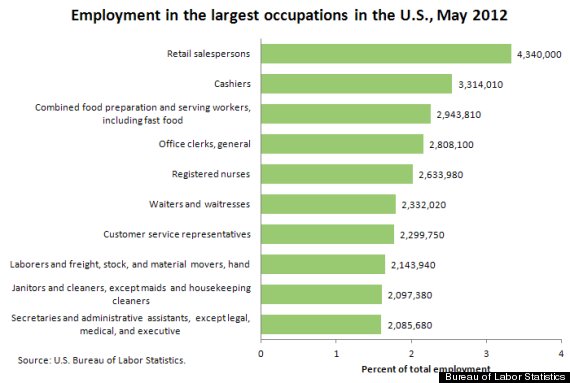Breaking the Cycle of Bi-Weekly Pay
The traditional bi-weekly pay cycle has been a staple in the retail industry for decades. However, this payment schedule can be challenging for employees to manage their finances, leading to difficulties in budgeting and saving. Many retail employees have to wait two weeks to receive their paychecks, which can cause financial strain and stress. In contrast, retail stores that pay weekly offer a more desirable alternative, providing employees with a steady and predictable income stream.
Weekly paychecks can be a game-changer for retail employees, allowing them to better manage their finances and reduce financial stress. With a weekly pay schedule, employees can budget and plan their expenses more effectively, knowing exactly when they will receive their next paycheck. This can lead to improved financial stability and reduced stress, as employees are better equipped to handle unexpected expenses and financial setbacks.
In addition, weekly paychecks can also improve employee motivation and productivity. When employees receive their paychecks on a weekly basis, they are more likely to feel valued and appreciated by their employer. This can lead to increased job satisfaction and engagement, as employees feel more connected to their work and more motivated to perform at their best.
Furthermore, retail stores that pay weekly can also benefit from improved employee retention rates. By offering a more desirable pay schedule, retailers can attract and retain top talent in the industry, reducing turnover costs and improving overall business performance. In a competitive job market, weekly paychecks can be a key differentiator for retailers, setting them apart from other employers and making them more attractive to potential employees.
As the retail industry continues to evolve, it’s likely that weekly paychecks will become a standard practice. With the rise of the gig economy and changing employee expectations, retailers must adapt to meet the needs of their employees. By offering weekly paychecks, retailers can improve employee satisfaction, reduce turnover, and drive business success.
How to Find Retail Jobs with Weekly Pay
For job seekers looking to find retail stores that pay weekly, there are several strategies to increase their chances of success. One of the most effective ways to find weekly pay retail jobs is to search online. Utilize job search websites and platforms, such as Indeed, LinkedIn, and Glassdoor, to search for retail jobs that offer weekly pay. Use keywords like “retail stores that pay weekly” or “weekly pay retail jobs” to narrow down the search results.
Networking is also a crucial aspect of finding weekly pay retail jobs. Reach out to friends, family, and colleagues who work in the retail industry and ask about their pay schedules. Attend job fairs and industry events to connect with retail employers and inquire about their pay practices. Additionally, join online communities and forums related to retail jobs to gather information and advice from others in the field.
When applying for retail jobs, it’s essential to ask about the pay schedule during the hiring process. Inquire about the pay frequency, pay dates, and any benefits or perks that come with the job. This will help job seekers determine if the retail store offers weekly pay and if it’s a good fit for their financial needs.
Another approach is to look for retail stores that are known to offer weekly pay. Some retailers, such as Walmart and Target, have been reported to offer weekly pay to their employees. Research these retailers and their pay practices to determine if they offer weekly pay and if they have any job openings.
Lastly, consider working with staffing agencies that specialize in retail jobs. These agencies often have relationships with retail employers and can provide information about their pay practices. They can also help job seekers find retail jobs that offer weekly pay and match them with employers that meet their financial needs.
By using these strategies, job seekers can increase their chances of finding retail stores that pay weekly and improve their financial stability. Remember to always research the retailer and their pay practices before applying for a job to ensure it’s a good fit for your financial needs.
Top Retail Stores That Pay Weekly
Several well-known retail stores have adopted weekly pay schedules, providing their employees with a more stable and predictable income stream. One such retailer is Walmart, which offers weekly pay to its employees. Walmart’s weekly pay schedule allows employees to receive their paychecks every week, rather than every two weeks. This can be especially beneficial for employees who have financial obligations or expenses that need to be paid on a weekly basis.
Target is another retailer that offers weekly pay to its employees. Target’s weekly pay schedule is designed to provide employees with a more consistent income stream, allowing them to better manage their finances and plan for the future. In addition to weekly pay, Target also offers a range of benefits and perks to its employees, including employee discounts and professional development opportunities.
Costco is a membership-based warehouse club that also offers weekly pay to its employees. Costco’s weekly pay schedule is designed to provide employees with a more stable income stream, allowing them to better manage their finances and plan for the future. In addition to weekly pay, Costco also offers a range of benefits and perks to its employees, including employee discounts and professional development opportunities.
Other retail stores that pay weekly include grocery stores like Kroger and Safeway, as well as department stores like Macy’s and Kohl’s. These retailers recognize the importance of providing their employees with a stable and predictable income stream, and have adopted weekly pay schedules to meet this need.
It’s worth noting that while these retailers offer weekly pay, the specific pay schedules and benefits may vary depending on the location and type of job. Employees should always check with their employer to confirm their pay schedule and benefits.
Overall, retail stores that pay weekly are providing their employees with a valuable benefit that can help them better manage their finances and plan for the future. By offering weekly pay, these retailers are demonstrating their commitment to their employees’ financial well-being and stability.
The Benefits of Weekly Pay for Retail Employees
Receiving weekly paychecks can have a significant impact on the financial stability and well-being of retail employees. One of the primary benefits of weekly pay is improved financial stability. When employees receive their paychecks on a weekly basis, they are better able to manage their finances and plan for the future. This can be especially beneficial for employees who have financial obligations or expenses that need to be paid on a weekly basis.
Weekly pay can also reduce stress and anxiety for retail employees. When employees are paid on a bi-weekly or monthly basis, they may experience financial stress and anxiety as they wait for their next paycheck. By receiving their paychecks on a weekly basis, employees can better manage their finances and reduce their stress levels.
In addition to improved financial stability and reduced stress, weekly pay can also increase motivation and productivity for retail employees. When employees receive their paychecks on a weekly basis, they are more likely to feel valued and appreciated by their employer. This can lead to increased job satisfaction and engagement, as employees feel more motivated to perform at their best.
Furthermore, weekly pay can also provide retail employees with a sense of financial security and independence. When employees receive their paychecks on a weekly basis, they are better able to manage their finances and make financial decisions that are in their best interests. This can lead to increased financial independence and a greater sense of control over their financial lives.
Overall, the benefits of weekly pay for retail employees are numerous. By providing employees with a stable and predictable income stream, retailers can improve financial stability, reduce stress, and increase motivation and productivity. As the retail industry continues to evolve, it’s likely that weekly pay will become a standard practice, providing employees with the financial stability and security they need to thrive.
How Weekly Pay Can Improve Employee Retention
Offering weekly paychecks can be a competitive advantage for retailers, leading to improved employee retention rates and reduced turnover costs. When employees receive their paychecks on a weekly basis, they are more likely to feel valued and appreciated by their employer. This can lead to increased job satisfaction and engagement, as employees feel more motivated to perform at their best.
Weekly pay can also reduce turnover rates by providing employees with a sense of financial security and stability. When employees receive their paychecks on a weekly basis, they are better able to manage their finances and plan for the future. This can lead to increased loyalty and commitment to the company, as employees feel more secure in their financial situation.
In addition to improved employee retention, weekly pay can also reduce recruitment costs for retailers. When employees are satisfied with their pay and benefits, they are more likely to recommend their employer to friends and family. This can lead to a reduction in recruitment costs, as retailers are able to attract top talent through word-of-mouth referrals.
Furthermore, weekly pay can also improve employee morale and productivity. When employees receive their paychecks on a weekly basis, they are more likely to feel motivated and engaged in their work. This can lead to increased productivity and efficiency, as employees are more focused on their tasks and responsibilities.
Overall, offering weekly paychecks can be a strategic move for retailers looking to improve employee retention and reduce turnover costs. By providing employees with a sense of financial security and stability, retailers can increase job satisfaction and engagement, leading to improved productivity and efficiency.
As the retail industry continues to evolve, it’s likely that weekly pay will become a standard practice. Retailers who adopt weekly pay schedules will be better positioned to attract and retain top talent, leading to improved business performance and increased competitiveness in the market.
Challenges and Limitations of Implementing Weekly Pay
While offering weekly paychecks can be a competitive advantage for retailers, there are also potential challenges and limitations to consider. One of the main challenges is increased administrative costs. Implementing a weekly pay schedule can require significant changes to a retailer’s payroll system, which can be time-consuming and costly.
Another challenge is logistical complexity. Weekly pay schedules can require more frequent payroll processing, which can be a challenge for retailers with limited resources or outdated payroll systems. Additionally, retailers may need to adjust their accounting and financial reporting systems to accommodate weekly pay.
Furthermore, retailers may also face challenges in terms of employee expectations and communication. Employees may have different expectations about their pay schedules, and retailers may need to communicate clearly about the benefits and limitations of weekly pay. Retailers may also need to address concerns about pay frequency and amounts, particularly if employees are used to receiving paychecks on a bi-weekly or monthly basis.
In addition to these challenges, retailers may also face limitations in terms of technology and infrastructure. Implementing a weekly pay schedule may require significant investments in technology and infrastructure, such as new payroll software or hardware. Retailers may also need to ensure that their systems are secure and compliant with relevant laws and regulations.
Despite these challenges and limitations, many retailers are finding ways to successfully implement weekly pay schedules. By investing in technology and infrastructure, communicating clearly with employees, and addressing concerns and expectations, retailers can overcome the challenges of weekly pay and reap the benefits of improved employee satisfaction and retention.
Ultimately, the key to successful implementation of weekly pay is careful planning and execution. Retailers should carefully consider their options, assess their resources and capabilities, and develop a comprehensive plan for implementing weekly pay. By doing so, retailers can minimize the challenges and limitations of weekly pay and maximize the benefits for their employees and their business.
Alternatives to Weekly Pay: Other Benefits and Perks
While weekly paychecks can be a desirable benefit for retail employees, there are other benefits and perks that retailers can offer to attract and retain top talent. One alternative to weekly pay is flexible scheduling. Retailers can offer employees flexible scheduling options, such as telecommuting or compressed workweeks, to provide them with more control over their work-life balance.
Another alternative to weekly pay is employee discounts. Retailers can offer employees discounts on store merchandise or services, which can be a valuable benefit for employees who shop at the store regularly. Employee discounts can also be a way for retailers to show their appreciation for their employees’ hard work and dedication.
Professional development opportunities are another alternative to weekly pay. Retailers can offer employees training and development programs to help them advance in their careers. This can include workshops, seminars, and online courses, as well as mentorship programs and coaching.
Other benefits and perks that retailers can offer to employees include health and wellness programs, employee recognition programs, and community involvement opportunities. Health and wellness programs can include gym memberships, health screenings, and wellness workshops, while employee recognition programs can include employee of the month/quarter/year awards and bonuses.
Community involvement opportunities can include volunteer days, charity events, and sponsorships of local organizations. These types of programs can help retailers build a positive reputation in their community and attract employees who are passionate about giving back.
Ultimately, the key to attracting and retaining top talent in retail is to offer a comprehensive benefits package that includes a range of benefits and perks. By offering alternatives to weekly pay, retailers can provide employees with more options and flexibility, which can lead to increased job satisfaction and retention.
As the retail industry continues to evolve, it’s likely that we’ll see more retailers offering alternative benefits and perks to attract and retain top talent. By staying ahead of the curve and offering innovative benefits and perks, retailers can build a positive reputation and attract employees who are passionate about their work.
Conclusion: The Future of Retail Pay
In conclusion, weekly paychecks are a game-changer for retail employees. By providing employees with a more stable and predictable income stream, retailers can improve financial stability, reduce stress, and increase motivation. Additionally, offering weekly paychecks can be a competitive advantage for retailers, leading to improved employee retention rates and reduced turnover costs.
While there are challenges and limitations to implementing weekly pay schedules, such as increased administrative costs and logistical complexities, the benefits far outweigh the drawbacks. Retailers who adopt weekly pay schedules will be better positioned to attract and retain top talent, leading to improved business performance and increased competitiveness in the market.
As the retail industry continues to evolve, it’s likely that weekly paychecks will become a standard practice. Retailers who are ahead of the curve and offer weekly paychecks will be seen as innovative and forward-thinking, and will be better positioned to attract and retain top talent.
In the future, we can expect to see more retailers offering weekly paychecks, as well as other benefits and perks that prioritize employee well-being and satisfaction. By prioritizing employee needs and providing a more stable and predictable income stream, retailers can build a positive reputation and attract employees who are passionate about their work.
Ultimately, the future of retail pay is bright, and weekly paychecks are just the beginning. As retailers continue to innovate and prioritize employee needs, we can expect to see a more stable and satisfied workforce, leading to improved business performance and increased competitiveness in the market.







